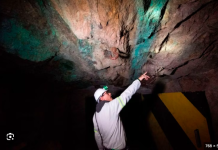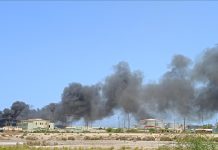
/
RSS Feed
In South Sudan’s Unity State, herders draw murky water from a small, contaminated pond, fully aware of the dangers. “This water is dirty because of oil—it’s filled with chemicals,” warns community chief Chilhok Puot. Nyatabah, a local herder, adds, “It makes you pant and cough. But without it, we’re dying of thirst.”
David Bojo Leju, a former oil engineer who spent eight years working with the Greater Pioneer Operating Company (GPOC)—a consortium involving Malaysian, Indian, and Chinese firms, with South Sudan’s government owning a 5% stake—has been raising alarms about the pollution in Unity State. Following a major pipeline rupture five years ago, he began photographing and filming pools of oily water and blackened soil near Roriak, where local communities live.

Bojo Leju reports that oil spills and leaks were frequent, and he was often directed to remove polluted soil from visible areas. Despite his repeated warnings to company managers, he says little was done, with no effective soil treatment plan in place. He also highlights the issue of untreated “produced water”—wastewater released with oil that contains hydrocarbons and other toxins—contributing to environmental and health risks.
Flooding has worsened the pollution, according to Bojo Leju, creating a “disaster” that he describes as a “silent killer” spreading across Unity State. Once manageable seasonal flooding has transformed into an ongoing crisis, with extreme rains in 2019 trapping water in low-lying clay soil and submerging the land. By 2022, two-thirds of the state was underwater, and even today, around 40% remains submerged.
In this flooded landscape, survival is a daily challenge. Near Roriak, villagers endure long walks to reach charcoal-making sites and use polluted water that causes illness. Nyeda, a mother living in a flood-isolated camp, shares her fears for her seven children back home, adding that the lack of clean water heightens their struggle. Hospitals in Bentiu report cases of congenital abnormalities potentially linked to pollution, with newborns facing severe birth defects and high mortality.

















